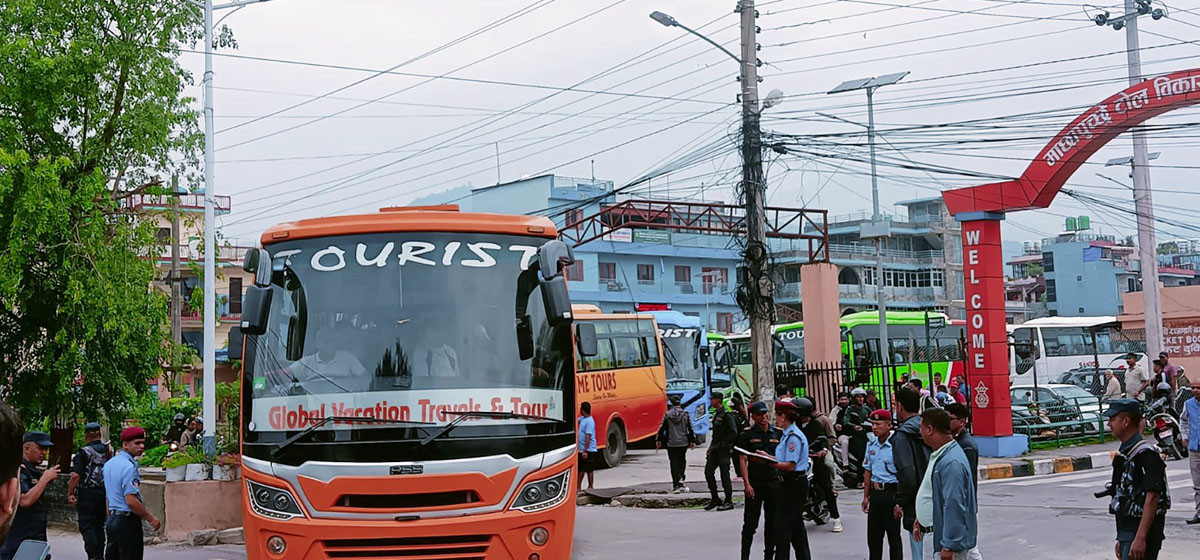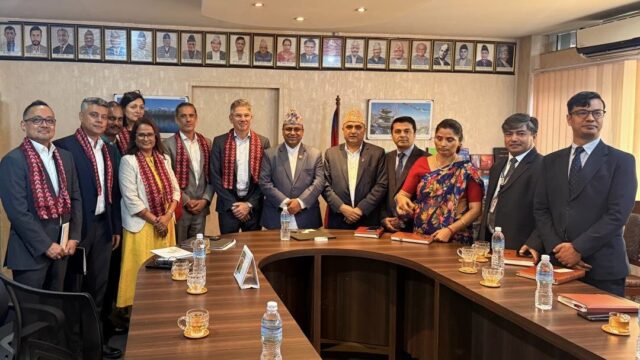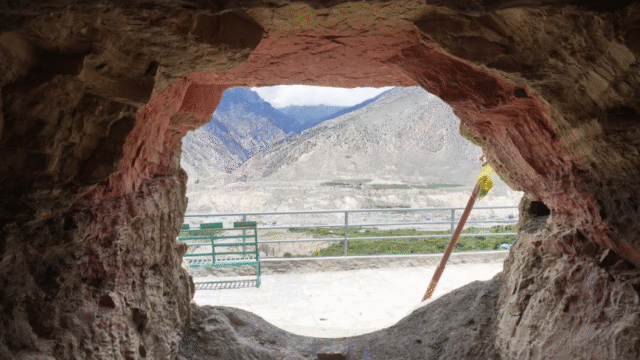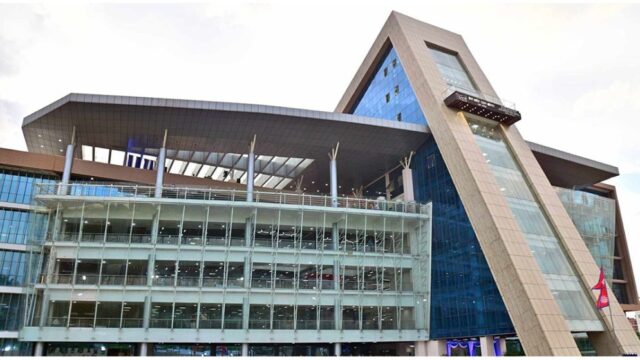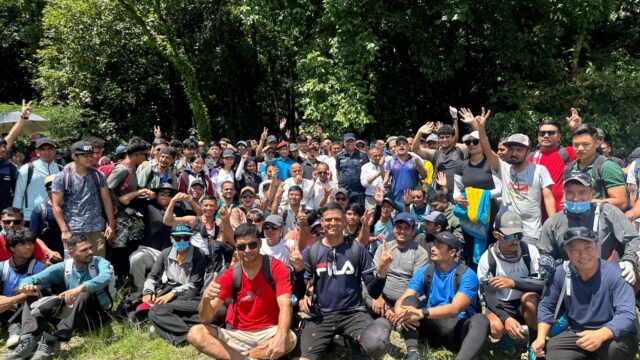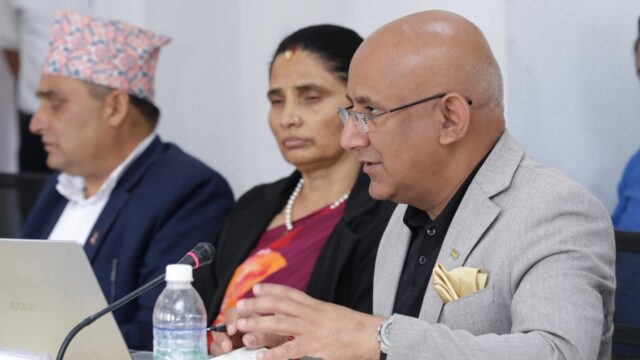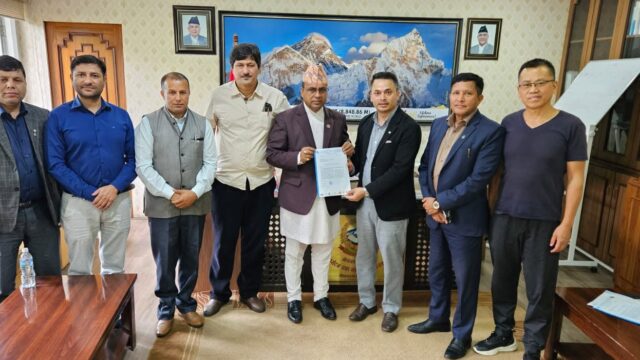Despite a strike enforced by transport entrepreneurs and workers that has brought public transportation services to a halt, tourist buses continue to operate uninterrupted across major destinations. While daily commuters are facing mobility challenges due to the strike, domestic and international tourists are still being served by organized tourist transport services.
The ongoing agitation is a response to the Gandaki Province government’s decision to allow private vehicles to operate as passenger carriers under the name of “ride-sharing.” Transport workers and entrepreneurs claim this move violates provisions of the Constitution and the existing Transport Management Act, prompting them to initiate a phased protest that escalated into a full transport halt from today.
Tourist Buses in Operation Amidst Strike
In contrast to the halted public transport services, tourist buses operated by the Tourist Bus Association Nepal (TBAN) are running smoothly along key tourist routes such as Kathmandu to Pokhara, Lumbini, and Chitwan.
TBAN President Bhisma Neupane confirmed that their operations are continuing as usual to ensure that both foreign and domestic tourists are not affected by the public transport shutdown. “Even during past strikes and shutdowns, tourist buses have consistently provided services. Our priority remains to serve travelers without disruption,” he stated.
Nyaupane added that tourist bus services have a longstanding commitment to maintaining uninterrupted travel for tourists, even during times of political unrest or industrial action. This resilience has helped uphold Nepal’s tourism reputation, especially during sensitive periods.
Industry Leaders Call for Dialogue
Bed Raj Bastola, President of the Nepal Tourist Transport Entrepreneurs Association, emphasized that strikes and shutdowns are not viable long-term solutions and called for resolution through dialogue. “We must reach a conclusion through negotiations. These disruptions send a negative message to domestic and international visitors and harm the tourism industry as a whole,” he said.
Bastola expressed concern over obstruction to tourist vehicle operations and urged the government to ensure smooth operation of tourism transport even during strikes. He stressed that government intervention is critical to safeguarding Nepal’s tourism economy from adverse impacts caused by such protests.
Protest Over Ride-Sharing Regulations
The strike stems from the Gandaki Province government’s new regulation, which permits private vehicles to operate as commercial transport under the ride-sharing model. Transport entrepreneurs argue that this violates Article 57 (6), Sub-Articles 3 and 5 of the Constitution and contradicts key clauses in the Transport Management Act 2049 (Chapters 2, Articles 8(2) and 12(1)).
According to the protesting groups, equating private vehicles with public transport undermines the rights and investments of registered public transport operators and compromises road safety standards. They have been organizing a series of protest programs over the past week, culminating in today’s action, where public vehicles have been kept off the roads and parked in garages as a show of protest.
Potential Impact on Tourism and Daily Life
The strike has already affected hundreds of daily commuters, causing inconvenience for locals and domestic travelers. However, the uninterrupted service by tourist buses has prevented disruptions for foreign travelers who often rely on pre-booked, scheduled transport services.
Industry stakeholders warn that prolonged disputes and transport-related strikes could tarnish Nepal’s image as a tourist-friendly destination. The need for reliable and predictable transport services is crucial, particularly during the ongoing peak travel season, as Nepal continues to recover from the pandemic’s impact on tourism.
Tourism analysts suggest that while regulatory modernization is necessary to adapt to global ride-sharing trends, it must be done with adequate consultation to prevent sector-wide conflict. Ensuring that both traditional public transport and new mobility platforms can coexist harmoniously should be a government priority.
The Way Forward
As pressure mounts on provincial authorities to revisit the ride-sharing provisions, tourism bodies and transport entrepreneurs are urging swift dialogue. The demand is not only for clarity in policy but also for assurance that the tourism sector, one of Nepal’s economic lifelines, remains protected from the ripple effects of regulatory disputes.
In the meantime, tourist buses remain a reliable alternative for travelers, helping maintain a level of service continuity and preserving the positive experiences of visitors across Nepal’s prime destinations.
While the standoff between the Gandaki government and public transport operators intensifies, tourist buses have emerged as crucial carriers of mobility, symbolizing the resilience of Nepal’s tourism sector. Industry leaders now hope that responsible negotiation and balanced policymaking will restore normalcy without compromising tourism momentum or commuter welfare.
